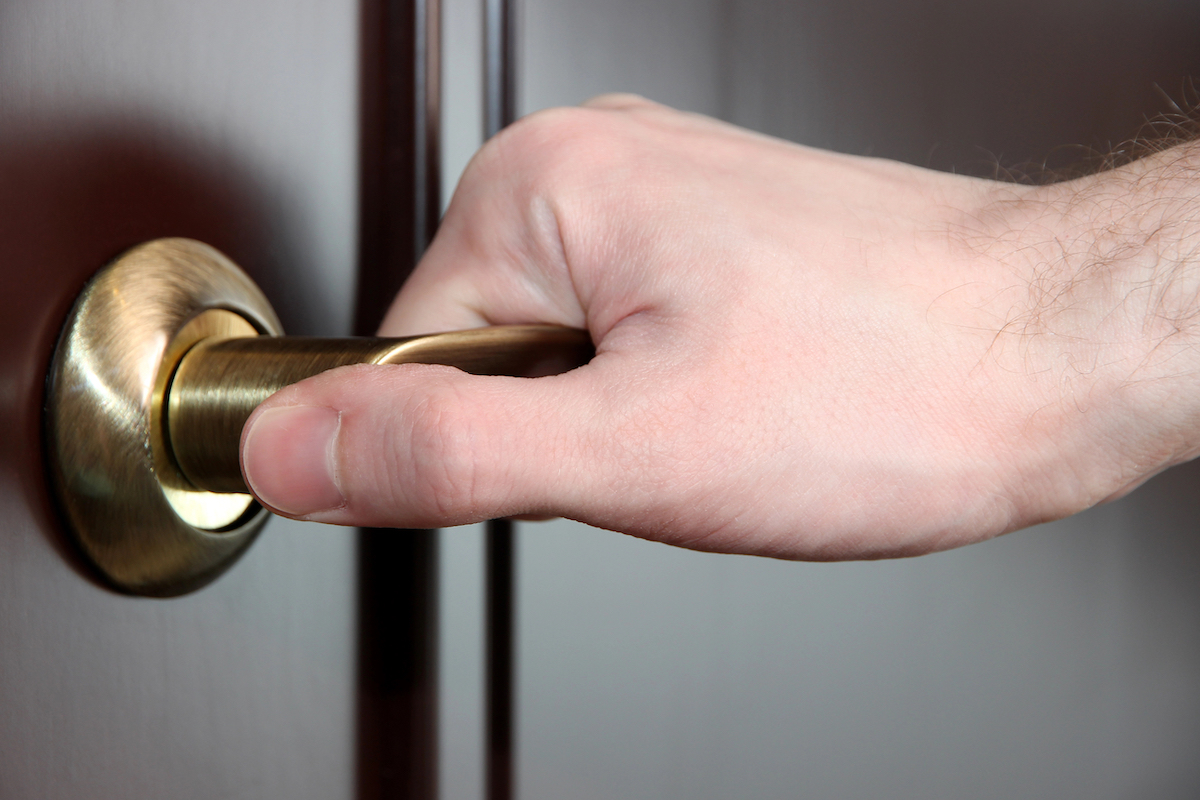We may earn revenue from the products available on this page and participate in affiliate programs. Learn More ›
Locks are the best method for securing a door. But if a lock fails, the door doesn’t have a lock, or you don’t trust the lock situation in an apartment or hotel, you can take steps to ensure that the door and the home are secured. Even if the exterior door has a lock, extra security can help fortify a sliding door to the yard, and locking your bedroom door can keep your college roommate from wandering in.
While the best fix is often to install, rekey, repair, or replace a lock, we also know of some clever DIY hacks for how to lock a door without a lock. The following are quick, temporary solutions that can help you get a good night’s sleep without worrying about your safety.
1. Use a Doorstop
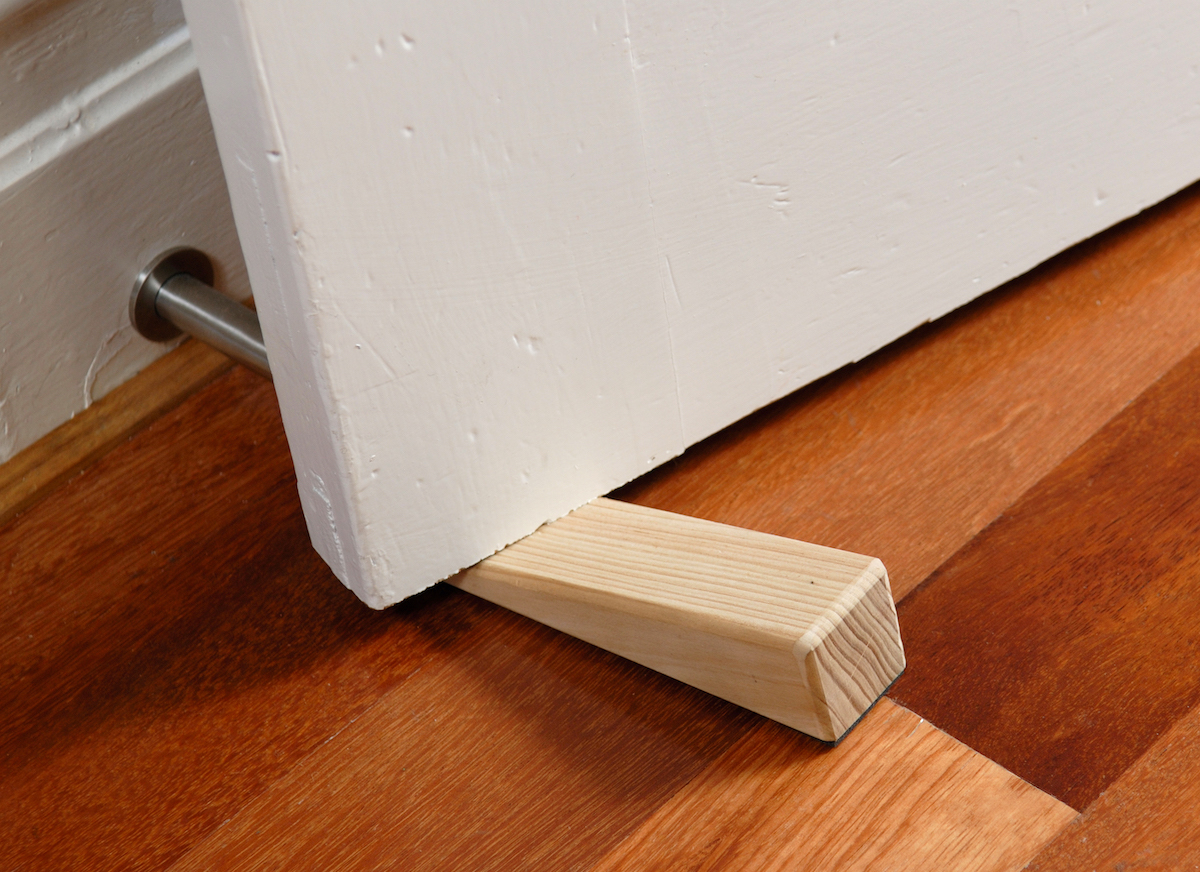
Doorstops are typically used to prevent doors from closing. But when you place a doorstop against an inward opening door, it physically prevents someone from opening it, even if they can turn the door knob. It’s a simple, effective method to help secure a home when the door lock or latch is broken. For extra security, look for a doorstop with an alarm such as a siren or barking dog sound. A nonslip bottom is essential to help resist pressure, especially for travel-size doorstops.
A doorstop will not work on outward-opening doors, however. And with enough force, an intruder could manage to bypass a doorstop. Consider securing an outward-opening door with an additional method on this list for increased security.
2. Make a Barricade Using the Back of a Chair

Installing a quality door lock is important, but if you need to barricade a door using items you have around the house, look no further than your dining room: Sturdy chairs can be a good choice for keeping a door closed because you can angle them so that the top of the chair wedges under the door handle while the chair’s feet stay firmly planted against the ground. This creates pressure between the door and the floor along the back and legs of the chair, preventing the door from opening.
The back of the chair also can block lever-style door handles from opening downward. If the door handle also can open the door with an upward turn, then this method isn’t as useful. In this case, tie a belt or rope to the lever handle from the chair as outlined next to prevent it from opening downward or upward.
3. Tie a Belt or Rope
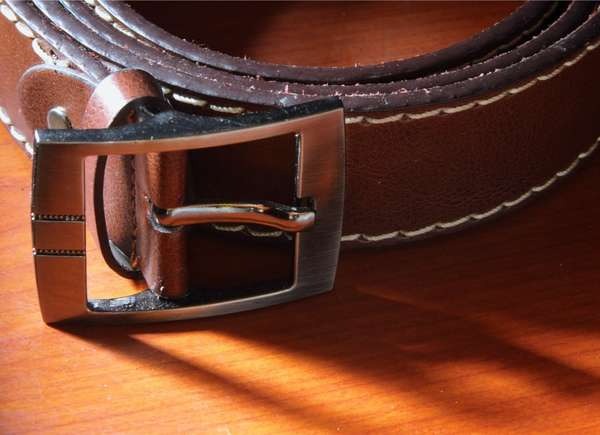
Lever-style door handles tend to be easier to lock than door knobs because a belt or rope can help restrain the physical movement of the handle. Just attach one end of the belt or rope to the handle and the other to a fixed object. Consider using two tethers to completely prevent movement when the handle can open both upward and downward.
A belt or piece of rope also is a good option for securing an outward-opening door because the tether can be attached to a heavy indoor object like a refrigerator or couch. For French doors, wrap both handles with the tether, blocking them from opening.
4. Insert a Portable Door Lock
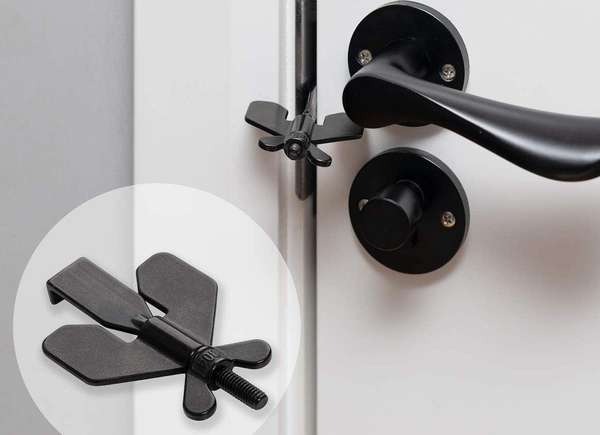
These helpful devices are great for renters and travelers who cannot install more permanent solutions. As the name suggests, an Addalock portable door lock is designed so you can use and remove it as necessary. Most consist of a metal piece, sometimes referred to as a claw, that fits over the bolt or latch on the existing door knob, and a lock that fits into the claw to prevent the door from opening. These locks are less effective on outward-opening doors.
5. Install a Security Bar
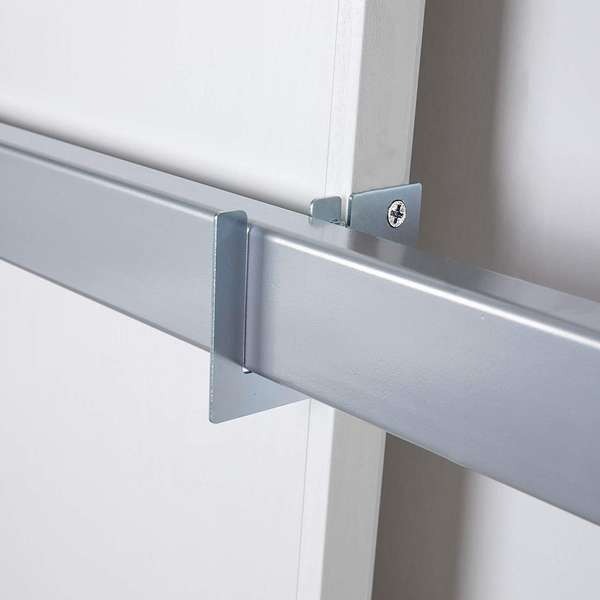
For better protection against significant force, like intruders attempting to kick a door in or break it down with their shoulder, security bars can help. Security bars or barricades consist of a pair of heavy-duty brackets that DIYers can fasten to the wall or door frame, depending on the product. A thick metal or wood bar then sits in the brackets, blocking the entire width of the door.
You can lift this security bar up and out of the brackets when you need to use the door, and can quickly place it back in the brackets afterward with very little effort. Security bars are not effective at securing outward-opening doors.
6. Stick a Fork in It
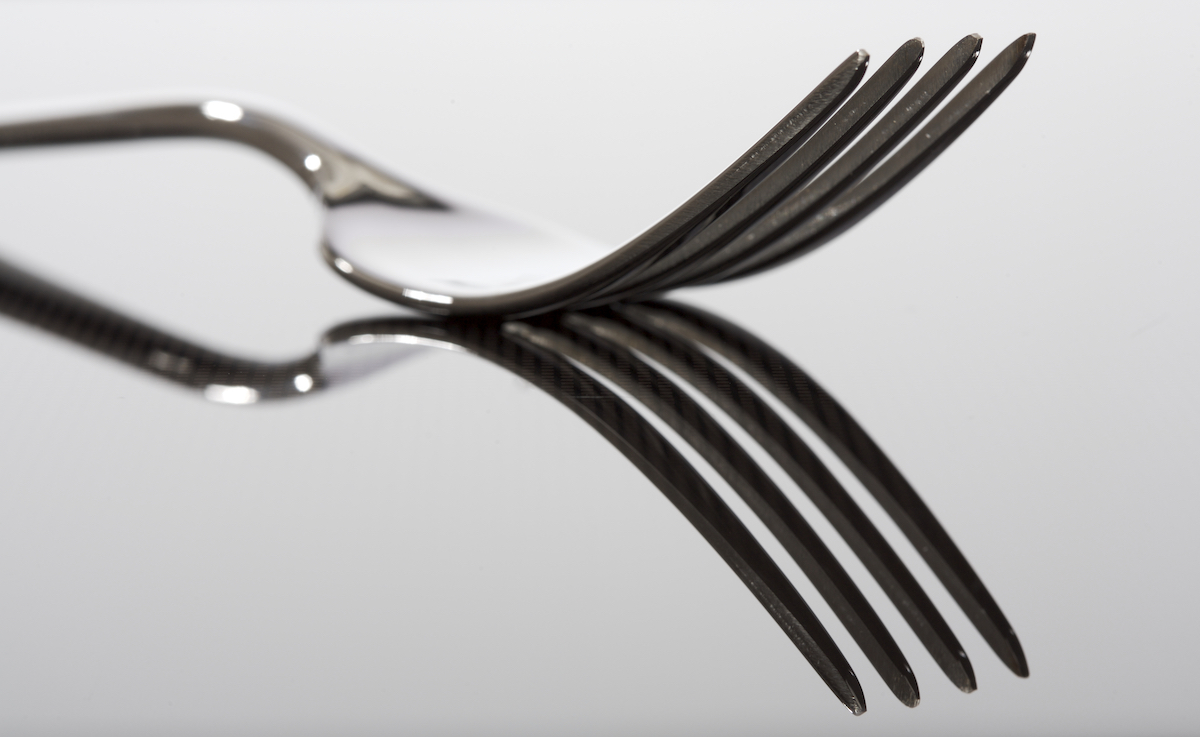
In a pinch, you can grab a simple fork to temporarily lock a door that opens inwardly. To secure the door, bend the tines of the fork so that the tips of the tines fit into the door latch and the rest of the fork can comfortably remain in the gap between the door and the door frame when the door is closed. Open the door and remove the fork, then break off the handle of the fork.
Place the head of the fork back into the door latch as before, making sure that the bent tines are securely hooked to the door latch, then close the door. With the door closed, slide the handle of the fork through the tines, creating a horizontal barrier that prevents the door from opening inward.
7. Prop Up a Door Jammer
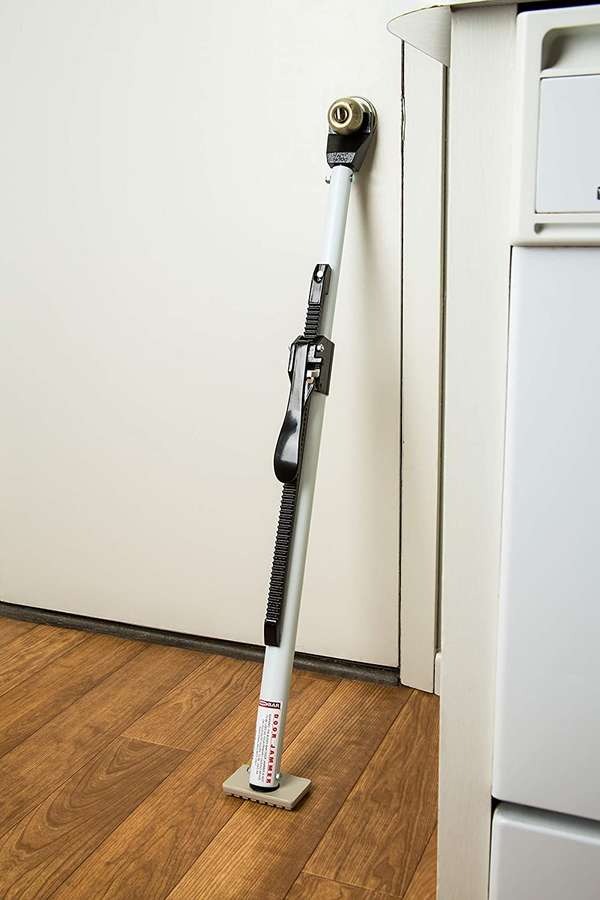
A door jammer is a simple alternative to DIY solutions for locking a door without a lock, and an especially good solution for securing apartment doors. These tools typically consist of a height-adjustable security bar with a rounded end designed to fit snugly under a door knob or door handle. The other end has a padded foot that is made to sit flat on the floor and resist sliding, creating a system that puts pressure on the floor if someone attempts to open the door inwards. For recommendations on the solution for your situation, refer to our tested guide to the best door security bars.
8. Install a Floor Barricade
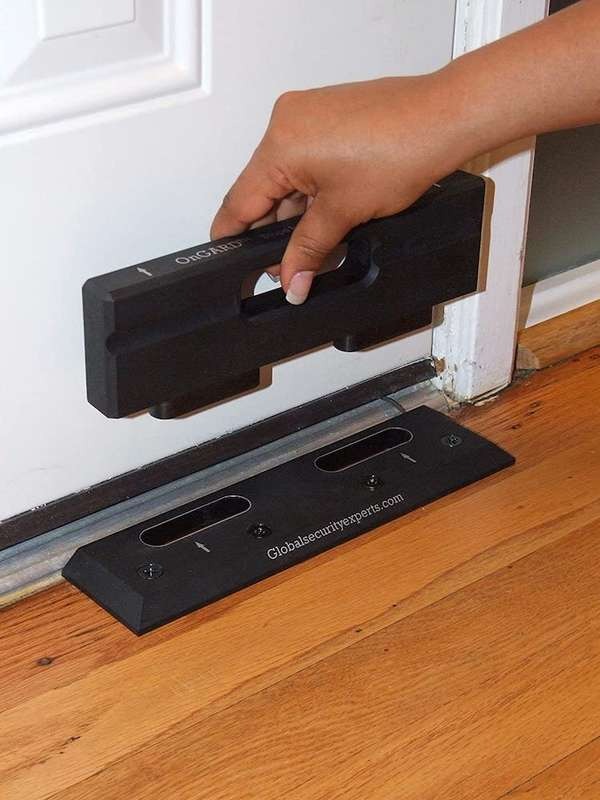
Floor barricades are made up of two pieces: a base and a brace that can fit into or be removed from the base. Install a floor barricade by inserting screws through the base and into the floor. Make sure when opening the door that it will clear the top of the base before installing, so you can use the door when the brace is removed. When you want to secure the door, just insert the brace and it will prevent the door from opening inward. Using a floor barricade is a good choice to help prevent a break-in for people who can install it in their homes, but it isn’t an option for renters and travelers.
9. Remove the Door Handle

While this isn’t the best option to keep the door secure, removing the door knob or handle entirely presents a challenge for anyone trying to gain access to the home (or an interior room). Without a handle, an intruder can’t open the door in the traditional sense, though anyone interested in using this method should keep in mind that with enough effort and one or more makeshift tools, a savvy person can turn the door mechanism even without a handle. It might be best to pair this option with another temporary door lock, such as a doorstop, or even a barricade.
10. Mount a Strike Plate Lock
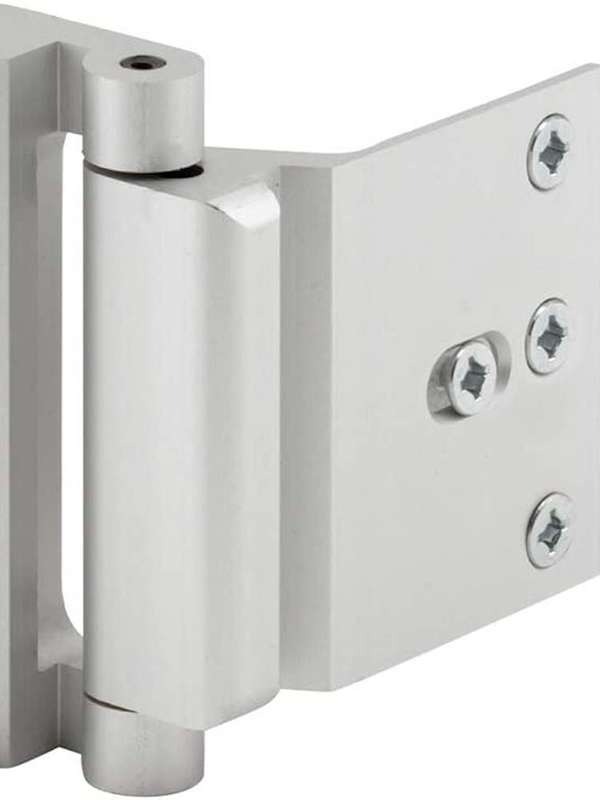
A strike plate lock is a small device that a DIYer can mount to the door frame. It works similarly to a standard door chain except that the strike plate lock has a metal loop that slips over the door handle to prevent the door from opening. This method is more secure than relying on a set of screws on the back of a door to keep the door secured against break-ins. Also, users can install a strike plate lock using the existing strike plate screw holes to prevent further damage to the door frame. Or place it high and out of kids’ reach to secure a wandering toddler.
11. Install Security Film and a Glass-Break Sensor
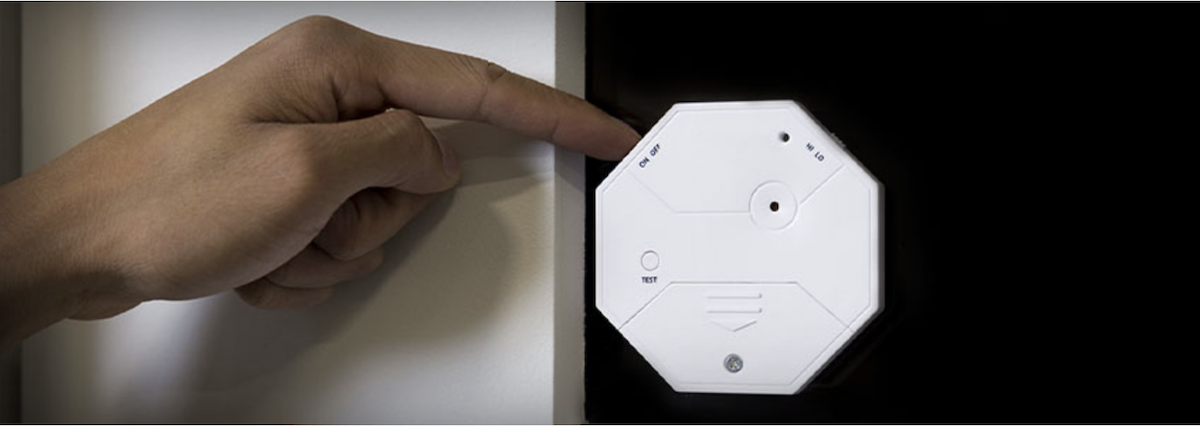
Not all doors are made with solid wood or metal, so it’s important to consider how to prevent someone from simply shattering the glass to access the door knob or lock. One of the best ways to increase the security of your front door with an adjoining glass panel or a glass door is to apply a security film to the door. The film will reinforce the glass and hold the shards together if shattered.
However, with enough time and effort, a potential intruder might still be able to break through the film, so pair this setup with a glass-break sensor that will detect when the glass is broken and then sound an alarm. This sudden alarm paired with the unexpected protection of security film will typically dissuade would-be thieves and trespassers.
12. Block a Sliding Door with a Broom Handle or Bar
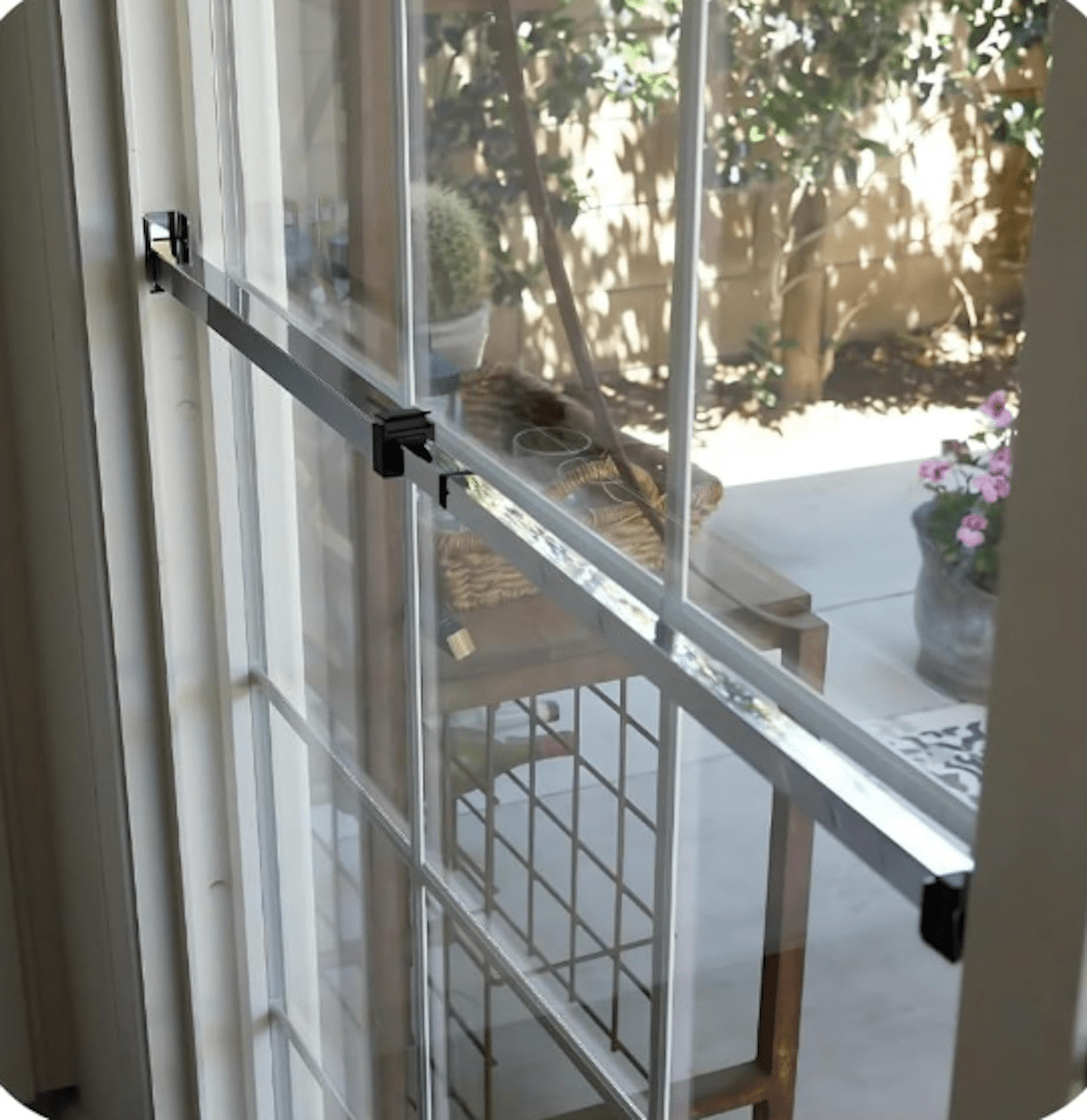
Sliding doors are often installed at the back or side of the home, where they open into the yard. Even if you use security film and a glass-break sensor, these measures are only effective if the door has a functional lock. If the lock on your sliding door is not working or might not be robust enough to stop determined assailants, then you should wedge a security bar into the door frame or track.
Alternatively, you can place a sturdy household object like a broom handle or a long wooden dowel to block the sliding door and prevent it from opening, thereby securing the back door even without a reliable lock.

